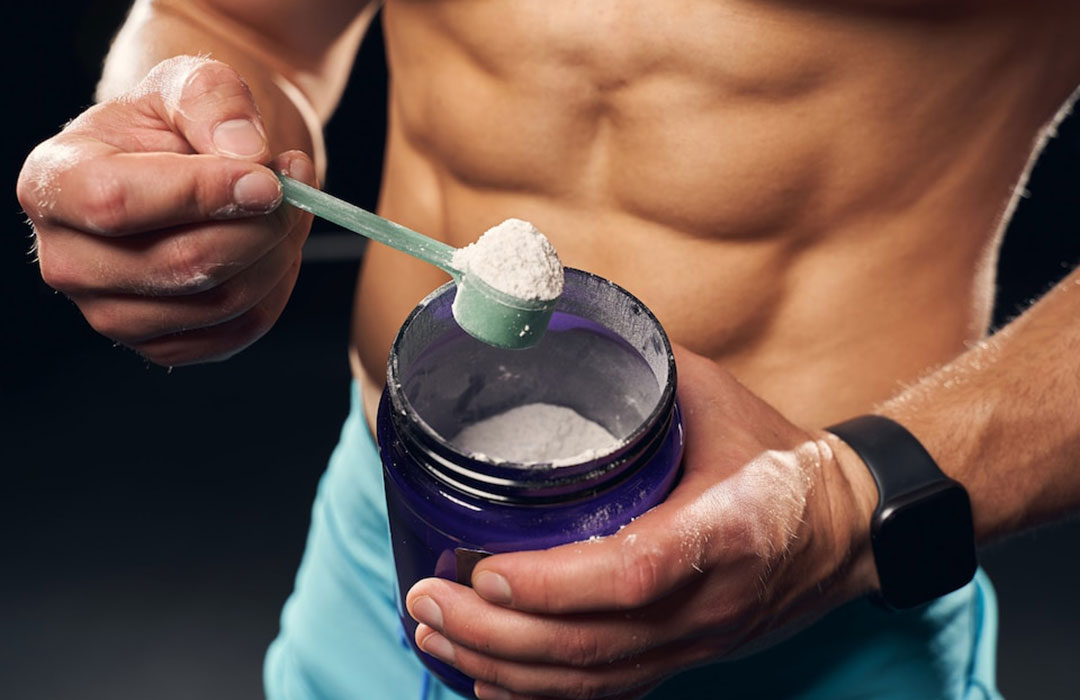Introduction
Have you ever wondered what happens when you take creatine on an empty stomach? Creatine is a popular supplement known for its potential to enhance athletic performance and promote muscle gain. However, the timing and consumption of creatine can be a topic of confusion for many fitness enthusiasts. In this article, we will explore the effects of taking creatine on an empty stomach and provide valuable insights into the best practices for its consumption.
Does Taking Creatine on an Empty Stomach Affect Absorption?
One common concern among individuals using creatine is whether taking it on an empty stomach affects its absorption. Research suggests that food intake or fasting does not significantly impact creatine absorption. Creatine is efficiently absorbed by the muscles and stored as phosphocreatine, providing a readily available energy source during intense physical activity.
Should You Take Creatine with Food or on an Empty Stomach?
The decision to take creatine with food or on an empty stomach ultimately depends on personal preference and individual goals. While some people prefer consuming creatine with food to minimize digestive discomfort, others find that taking it on an empty stomach allows for faster absorption. It’s important to note that both methods can be effective, and choosing one should be based on personal tolerance and convenience.
When Is the Best Time to Take Creatine?
The timing of creatine consumption is a subject of debate among fitness enthusiasts. Some individuals prefer taking creatine before a workout to maximize its availability during training sessions. Others find post-workout consumption more beneficial for replenishing creatine stores and facilitating recovery. Both pre-and post-workout creatine intake has shown positive results, so it’s recommended to experiment and find what works best for you.
Creatine Before or After Workout: Which Is Better?
The decision to take creatine before or after a workout depends on various factors, including personal preference and training goals. Taking creatine before a workout may provide an immediate energy boost and help enhance performance during high-intensity exercises. On the other hand, consuming creatine after a workout can aid in muscle recovery and replenish depleted creatine stores. Ultimately, the most effective approach may vary from person to person.
The Benefits of Creatine Supplementation
Creatine supplementation offers a range of benefits for athletes and fitness enthusiasts. Some potential advantages of creatine include:
- Increased Strength and Power: Creatine has been shown to enhance strength and power output, making it a valuable supplement for individuals involved in activities such as weightlifting and sprinting.
- Improved Exercise Performance: Creatine supplementation may improve performance in high-intensity, short-duration activities by increasing the availability of adenosine triphosphate (ATP), the primary energy source for muscular contractions.
- Muscle Gain: Creatine promotes muscle growth by increasing water content within muscle cells, improving protein synthesis and anabolic effects.
- Enhanced Recovery: Creatine supplementation can aid muscle recovery by replenishing phosphocreatine stores and reducing muscle damage and inflammation.
How to Maximize Muscle Gain with Creatine
To maximize muscle gain with creatine, it’s essential to follow a few fundamental guidelines:
- Consistent Consumption: Taking creatine regularly and consistently is recommended for optimal results. This ensures your muscles maintain elevated creatine levels, enhancing muscle growth and performance.
- Adequate Hydration: Creatine draws water into muscle cells, so staying hydrated is crucial to optimize its effects. Ensure you drink enough water throughout the day, especially during intense workouts.
- Combine with Resistance Training: Creatine works synergistically with resistance training to maximize muscle gain. Incorporate a well-structured weightlifting program into your routine to maximize creatine supplementation.
Taking Creatine on Rest Days
Even on rest days, it’s beneficial to continue creatine supplementation. While the increased energy demands of exercise may not be present, maintaining elevated creatine levels during rest periods can aid in muscle recovery and support overall muscle health. Therefore, it’s advisable to maintain regular creatine consumption on both training and non-training days.
Frequently Asked Questions (FAQs)
-
Is It Safe to Take Creatine on an Empty Stomach?
Yes, taking creatine on an empty stomach is safe for most individuals. Creatine is a naturally occurring compound found in various food sources and is well-tolerated by most users. However, if you experience any digestive discomfort or adverse reactions, you may consider taking creatine with food or adjusting the timing of consumption.
-
Can I Take Creatine on an Empty Stomach in the Morning?
Taking creatine on an empty stomach in the morning is a common practice. Many individuals find it convenient to consume creatine as part of their morning routine. Whether you take it before or after breakfast, the timing is not critical as long as you maintain a consistent daily intake.
-
Can You Mix Creatine with Coffee?
Mixing creatine with coffee is generally safe and poses no significant issues. Coffee contains caffeine, which can potentially enhance exercise performance and alertness. However, it’s important to note that excessive caffeine consumption may lead to unwanted side effects, such as jitters or increased heart rate. If you decide to combine creatine with coffee, it’s advisable to monitor your caffeine intake and adjust accordingly.
-
Can I Take Creatine on an Empty Stomach for Weight Loss?
While creatine is primarily known for its performance-enhancing and muscle-building effects, it does not directly promote weight loss. However, creatine can indirectly contribute to weight loss goals by improving exercise performance and supporting muscle gain. If your primary objective is weight loss, combining creatine supplementation with a balanced diet and regular exercise can be beneficial.
-
Can Creatine Cause Digestive Issues on an Empty Stomach?
While creatine is generally safe, some individuals may experience mild digestive issues when taking it on an empty stomach. These issues can include bloating, stomach cramps, or diarrhea. If you encounter such problems, try taking creatine with food or splitting the dosage throughout the day to alleviate discomfort.
-
Can Creatine Be Taken with Other Supplements?
Creatine can be safely combined with various other supplements. Some popular combinations include creatine with protein powder, branched-chain amino acids (BCAAs), or pre-workout formulas. However, it’s always advisable to consult with a healthcare professional or registered dietitian before starting any new supplement regimen.
Conclusion
Taking creatine on an empty stomach can be an effective and safe practice for most individuals. Whether your goal is to improve exercise performance, enhance muscle gain, or support overall fitness, creatine supplementation can provide valuable benefits. Remember to maintain consistent consumption, combine it with resistance training, and stay adequately hydrated to maximize the effects of creatine. Consult a healthcare professional before starting creatine supplementation if you have any specific concerns or medical conditions.




